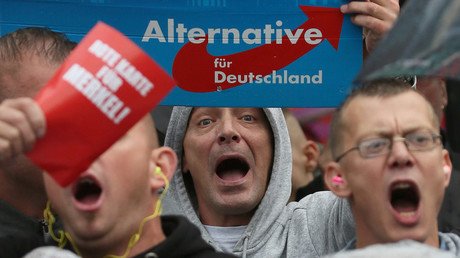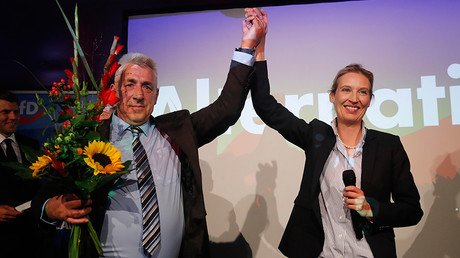Merkel & Schulz ignored foreign policy issues Germans worry about – ex German ambassador to RT
Germany’s major parties have been silent on foreign policy issues while the world and Germany itself face plenty of international problems, a German diplomat and FDP member told RT. He also said Germans want to improve the soured relations with Russia.
One of the reasons for the CDU’s failure, a significant loss in Sunday’s election, is “that they did not really address the problems of the nation,” a former German ambassador to Japan, Poland and India and the Free Democratic party (FDP) member, Frank Elbe, told RT.
The world has faced a plenty of crises in foreign affairs, including a belligerent North Korea, a wave of possible immigrants from Africa to Europe with no solution to stop them and a crisis with Russia, he said.
“If you look at the duel between Mrs. [Angela] Merkel and Mr. [Martin] Shultz, foreign political issues were nor addressed once,” Frank Elbe told RT, adding that journalists failed to ask such questions and the politicians didn’t address them.
Meanwhile, the deteriorating relations with Russia are bothering most of German population, who want them to be better, according to the politician.
“We have polls of Germany, stating that 81 percent of the German population feels uneasy about relations between Russia and Germany, and they wish some sort of an improvement of these relations, which are quintessential for the security of Europe,” Elbe said.
“If you ignore such anxiety that exists in the population, you are making a mistake and it’s right to call you complacent.”
READ MORE: Who's who in Germany's new parliament
Meanwhile, the FDP, which has won more than 10 percent of the seats in the Bundestag, may have its role in securing the soured relations with Russia, according to the Elbe.
“[Whether the FDP can be a big player in German politics] depends on how much they want to fill this role. In the past they were, even with less than 10 percent,” he told RT.
Elbe said that he would be pleased if the FDP would “make an effort to improve relations with Russia.”
Speaking on speculation in the media about Russian interference in the German elections, Elbe said that as long as he does not have any evidence he cannot talk about it. But in this context he is concerned that the talk can almost be used as a political weapon.
“That is not an issue which would take seriously, and definitely your audiences should not worry about it,” Elbe said.
The German parliamentary election finished on Sunday evening, marking a historic success for Bundestag newcomers the right-wing Alternative for Germany party (AfD) – which won 94 seats (12.6 percent). At the same time the major political force of the last decade, Merkel’s CDU alongside its Bavarian allied party, CSU, gained 246 sets (33 percent), which is the lowest result for the alliance in more than 50 years.
Not everyone welcomes the AfD lawmakers as the party is famous for some controversial statements for which it is accused of being “racist”, “Islamophobic” and even “Nazi” by German Muslims and left-wing politicians.














